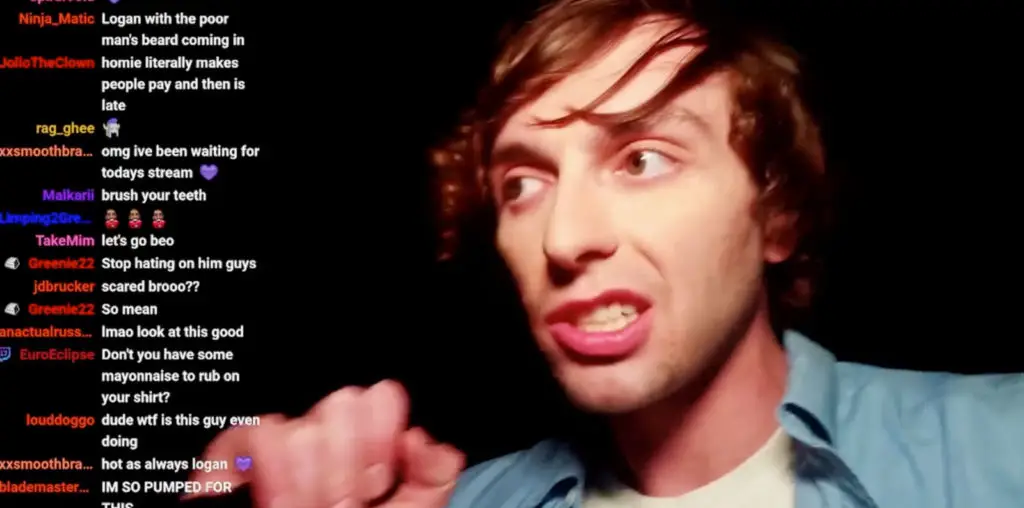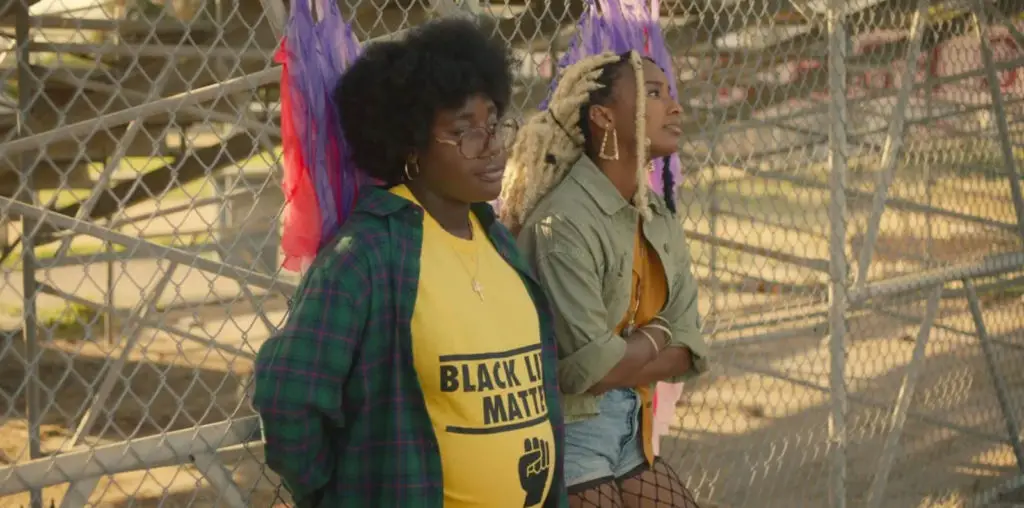
There are no pretenses in why bespectacled, slump-shouldered, sad-eyed Phillippe (writer/director Robert Lepage) suddenly starts floating upward at the Russian airport before going back home to Canada. Robert Lepage—who also plays Phillippe’s homosexual, more carefree brother Andre—is like that. In his world, as it should be in many worlds, people can dream as they’ve always dreamed, but they can also fly. Fish can freeze solid in a fishbowl. Flashbacks are never typical. In one scene, some time after the brothers’ mother dies, Phillippe takes out her pair of turquoise heels and drops them on the floor, filming them for a video he’s making to send to S.E.T.I (Search for Extra-Terrestrial Intelligence) in Arizona, which is seeking ten videos to convert into binary code and shoot into space in the hopes that any aliens out there will watch. The black-and-white lens gradually turns color as a woman steps into those shoes and it’s their mother, in the ‘60s, hosting a pleasant gathering.
Lepage, who directed Cirque du Soleil’s “Ka” for the MGM Grand in Las Vegas, has a stunning imagination, which makes up for a slow, staid story about Phillippe’s inner turmoil, which would have disappeared into itself completely without Lepage’s visual efforts, which find Phillippe desiring more in his life after facing disappointment after disappointment. It began with him as a young boy with a cancerous tumor on an optical nerve, which put him in the hospital for a time and it continues when his latest thesis, claiming that space exploration was spurred on by narcissism, is roundly rejected by the panel listening to him. Plus, he hawks newspaper subscriptions over the phone in a prison-like office where the desks are numbered and the supervisor chastises him for making personal phone calls, one of which turns into a personal call only after the woman he’s trying to sell a subscription to turns out to be an ex-girlfriend.
The other brother, Andre, is a weatherman, but moreso a weatherguy with his friendly demeanor toward whomever might be watching, and just living life as each hour comes, as each day turns into night. They’re so different that in certain scenes, it’s easy to forget that Lepage plays both roles and it’s a testament to Lepage’s talent for writing these men and knowing what makes each one who they are, especially Phillippe who still has a very long way to go in finding any happiness, trying to break away from his dispiriting life. In fact, most of the time, he’s not seen outside of any room; not the prison-like office, not his apartment, not even the gym, which he has a one-day coupon for and uses it.
In Phillippe’s childhood, first struck down by the tumor, and then his teenhood, where an acid trip finds him feeling 50 feet tall, there’s still nothing revealed toward why Phillippe hasn’t made any effort toward happiness in his life. Perhaps in some respect, his mother was the one who instilled him with any kind of spirit, any kind of feeling toward inspiration and exploration, but even while she loves him as any mother loves their kid, it’s what tied him down in life that keeps him down. Not anything from here. No easy answers are expected anyway, but some scenes feel the same, and not just by Phillippe making the video he hopes will be sent into space. It’s a gradual process, but it’s still nice to have something move occasionally, like an emotion or intense interest.
Lepage’s visual-effects-as-metaphors are effective, though, especially in a scene where a much younger Phillippe, knowing that an astronaut is attached to an air hose when he’s in space, figures that the bulge of his mom’s stomach contains an astronaut, since space is about the birth of discovery and new ideas, exploring new life and new experiences.
While the slow pace is a burden on some of what happens (witness Phillippe’s bitter rant to a bartender at a hotel bar after the noted Soviet cosmonaut Alexei Leonov doesn’t show up to meet him), there is a beating pulse in “Far Side of the Moon.” It’s as wondrous as the imaginative tales we all read as kids. It’s an adult storybook tale for us, in reminding us that daily worries should be blended with imagination, always.

